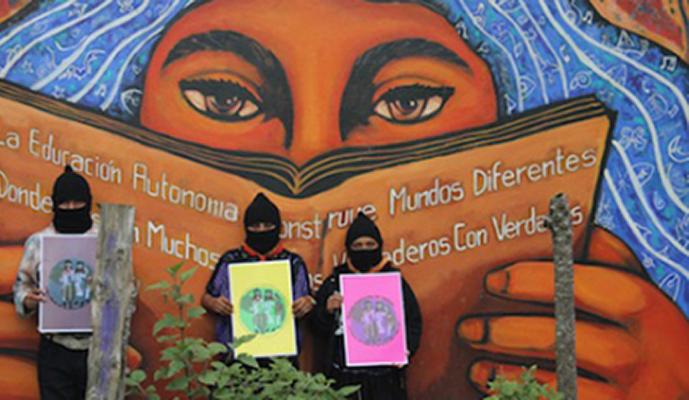
I am looking forward to working with and learning from the other members of the teaching team. I am also very excited about the possibility of connecting with Native elders from the Coast Salish world and beyond. And as always, I am thrilled about learning from a group of talented students who will come with new questions and possibilities.
Applications are now being accepted for the 2014 Summer Institute in the Arts & Humanities for UW undergraduates. An annual summer program, the Institute provides twenty competitively-selected students an opportunity to engage in primary interdisciplinary research under the guidance of UW instructors. The theme of this year’s SIAH is “Native Modernities: Histories, Politics, and Arts of Indigeneity,” and through it, participants will explore the rich histories of Native struggles, contemporary Indigenous social movements, and repertoires of decolonizing artistic, cultural, and intellectual production.
Developed in collaboration by the UW’s Undergraduate Research Program and the Simpson Center, the Summer Institute is an innovative program created to increase the number of undergraduates doing research in the humanities. Students are selected through an open, competitive application process and, upon selection, are named Mary Gates scholars, receive a scholarship, and earn twelve credits upon completion of the course. Participants are asked to develop original research ideas, and create a scholarly research project. They also work through a faculty and peer critique process and formally present their work to their classmates and the larger community at a closing symposium.
Past Institutes have centered on such topics as disease and health, media and the senses, nature and the environment, and trauma and memory. This year’s Institute encourages students to explore topics ranging from Indigenous social movements and artistic production to encounters between European and Native ways of knowing and conceptions of time.
Summer Institutes offer a unique teaching opportunity for their instructors as well. Each year, four faculty and/or doctoral student instructors from a variety of disciplines in the humanities and arts collaborate with each other. This year’s teaching team is comprised of María Elena García (Comparative History of Ideas and Jackson School of International Studies), José Antonio Lucero (Jackson School of International Studies), Dian Million (American Indian Studies and Canadian Studies), and Annie Dwyer (English). García recently sat down with the Simpson Center to discuss the upcoming Summer Institute and why she’s excited about it.
SC: Where did the idea for this year’s SIAH topic come from?
MEG: I think each of the members of the teaching team approach this idea in distinct ways. For me, the idea of “Native Modernities” is one that my family and I have wrestled with for a long time. My grandfather was a Quechua-speaking miner from Ayacucho, Peru. When he found economic opportunities in a US-owned mine and moved his family eventually to the capital city of Peru, he spoke Quechua less and less. Like many Quechua-speakers of his generation, his idea of progress meant leaving “Indianness” behind. When I was a young child, a leftist revolutionary government in Peru officialized Quechua as a national language. My parents, with my grandfather's blessing, decided that we should leave Peru behind as that country was, in my parent's eyes, “moving backwards.” Almost twenty years later, I moved to the Andes to begin learning Quechua and researching a dissertation on the ways that Indigenous families were grappling with the question over what languages their children should learn in elementary school. I wanted to understand the forces and histories that led so many families to think of Quechua and other Native languages as somehow not modern.
What I have learned in Peru and elsewhere is that colonialism is not a thing of the past, but an ongoing process that seeks to deny the existence of Native peoples and Indigenous ways of knowing. Colonialism continues to convince many people that “Native” and “Modern” are incompatible terms. We live in a colonial modern world that is built upon Native invisibility. In this world it is all too common to forget that we are on Native land and that there are hundreds of sovereign nations living within the borders of the US and other colonial settler states. It is a world that convinced my grandfather and so many others that one had to choose between being modern and being Native. This year’s Institute wants to explore the histories and consequences of that false choice.
SC: What are you most looking forward to about this year’s Institute?
MEG: I am looking forward to working with and learning from the other members of the teaching team. I am also very excited about the possibility of connecting with Native elders from the Coast Salish world and beyond. And as always, I am thrilled about learning from a group of talented students who will come with new questions and possibilities.
SC: What do you hope participating students will take away from the experience?
MEG: We hope students come away with a new appreciation of their role in the world as knowledge-producers. The Institute is a special space in which learning is collaborative, engaged, and dialogical. The teaching team brings years of expertise to the classroom and we will use that to create a foundation for our conversations. However, we also seek to create the conditions of possibility for students to thrive in creating their own research and creative projects. Additionally, students will have the opportunity to work with four instructors in a seminar setting. That kind of environment is incredibly rare in the academy and the kind of learning it makes possible can be wonderfully generative for students who are looking to life after the UW.
The Summer Institute in the Arts & Humanities is sponsored by Undergraduate Academic Affairs, the Simpson Center for the Humanities, the Office of Research, Summer Quarter, the Undergraduate Research Program, and the Mary Gates Endowment for Students. To be considered for this year’s Institute, applications must be received by Mar. 14, 2014. Review the call for application and find out how to apply.